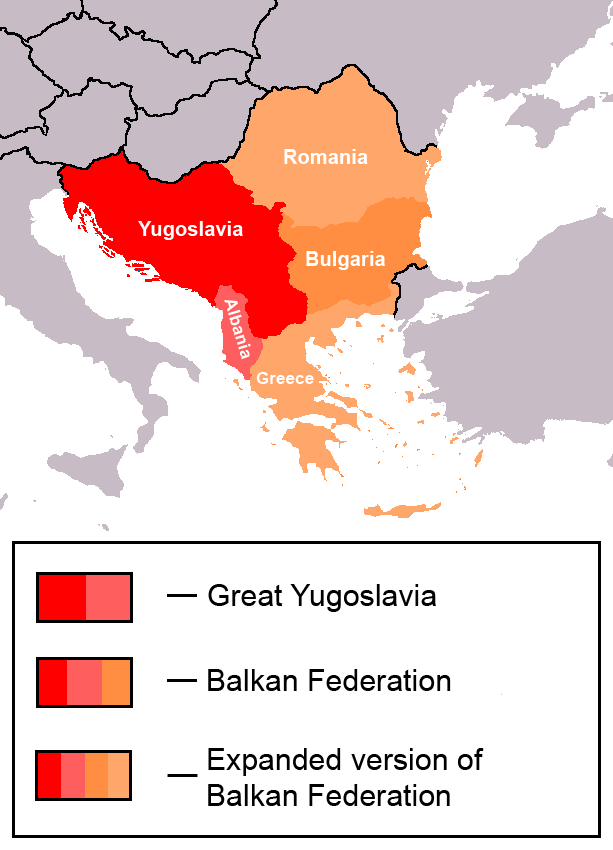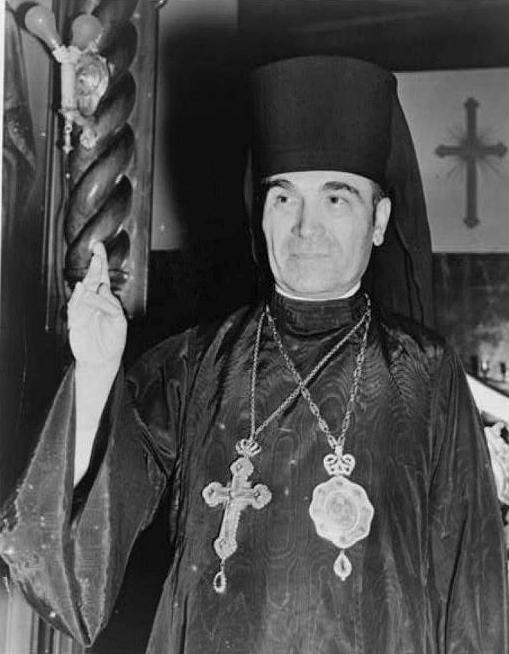|
KONARE
KONARE or Komiteti Nacional Revolucionar (Revolutionary National Committee) was a left-wing revolutionary committee of the Albanians, Albanian political ''émigrés'' in Europe, from 1925 till mid-30s. Its central political figure was Bishop Fan Noli. After the June Revolution, Ahmet Zogu and his supporters managed to overthrow Noli's government, making also use of the financials and military support from Kingdom of Yugoslavia and Greece. Most of the former democratic opposition fled to Italy, settling later in the western Europe, mainly in Vienna. Two organizations were formed there; KONARE and "Bashkimi Kombëtar" (National Union). The second consisted of patriotic-democratic anti-Zogist figures, while KONARE comprised also strong left-wing ideology. Beside being the main anti-Zogist opposition during 1925–30, it showed was anti-feudalism, feudal, anti-imperialist, and pro-Soviet nuances. KONARE managed to retrieve financial support by the COMINTERN with the intermediation of ... [...More Info...] [...Related Items...] OR: [Wikipedia] [Google] [Baidu] |
Balkan Federation
In late 19th and throughout the 20th century, the establishment of a Balkan Federation had been a recurrent suggestion of various political factions in the Balkans. The concept of a Balkan federation emerged in the late 19th century among left-wing political forces in the region. The central aim was to establish a new political unity: a common federal republic unifying the Balkan Peninsula on the basis of internationalism, socialism, social solidarity, and economic equality. The underlying vision was that, despite differences among the region's ethnic groups, the historical need for emancipation was a common basis for unification. This political concept went through three phases in its development. In the first phase the idea was articulated as a response to the collapse of the Ottoman Empire at the beginning of the 20th century. In the second phase, mostly through the interwar period (1919–1936), the idea of the Balkan federation was taken up by the Balkan Communist parties. ... [...More Info...] [...Related Items...] OR: [Wikipedia] [Google] [Baidu] |
Fan Noli
Theofan Stilian Noli, known as Fan Noli (6 January 1882 – 13 March 1965), was an Albanian Americans, Albanian-American writer, scholar, diplomat, politician, historian, orator, bishop, and founder of the Albanian Orthodox Church and the Albanian Orthodox Archdiocese in America who served as List of Prime Ministers of Albania, Prime Minister and regent of Principality of Albania, Albania in 1924 during the June Revolution. Fan Noli is venerated in Albania as a champion of literature, history, theology, diplomacy, journalism, music, national unity and ecumenism. He played an important role in the consolidation of Albanian language, Albanian as the national Albanian language, language of Albania with numerous translations of world literature masterpieces.. He also wrote extensively in English: as a scholar and author of a series of publications on Skanderbeg, William Shakespeare, Shakespeare, Ludwig van Beethoven, Beethoven, religious texts and translations. He produced a translati ... [...More Info...] [...Related Items...] OR: [Wikipedia] [Google] [Baidu] |
Aziz Çami
Aziz Çami (1893 – 15 December 1943) was an Albanian army officer and Balli Kombëtar commander. In 1920 he was a commander in the Vlora War. In the mid-1920s, he was exiled after the restoration of the monarchy as he was a supporter of Fan Noli. In 1931, he was arrested for an assassination attempt against King Zog I. During World War II, he joined the ranks of the Balli Kombëtar and fought with Nazi Germany. He was assassinated in Tirana in 1943. Life Aziz Çami, a member of the Cham Albanian Çami family, was born in Janjar, then part of the Ottoman kaza of Filiates. In 1917 he graduated from the military academy of Torino as an artillery officer. After his participation in the Vlora War in 1920, Çami became a follower of Fan Noli. He became an activist of the Komiteti Nacional Revolucionar (''KONARE'') (), created and led by Noli on 25 November 1925 in Vienna, which aimed at overthrowing the Zog of Albania regime. Hasan Prishtina and Mustafa Merlika-Kruja, two people t ... [...More Info...] [...Related Items...] OR: [Wikipedia] [Google] [Baidu] |
Kosta Boshnjaku
Kostandin Boshnjaku (20 October 1888 – 22 December 1953) was an Albanian banker, politician, diplomat and in the last years of his life as a translator of books. Even though he was one of the earliest Albanian communists, he was arrested and convicted on 31 December 1947 by the Supreme Military Court with life imprisonment due to the divergences he had with the communist regime. In 1949, he was released from prison by an amnesty, while unofficially it was said to have been released with the direct intervention of Soviet ambassador Dmitry Chuvakhin. He spent the last years of his live in Durrës serving as a translator of books in several languages. Biography Early life Kostandin Boshnjaku was born in Stegopull, Lunxhëri region, Ottoman Albania, which is today Gjirokastër County, Albania, in 1888 to an Albanian Orthodox family. His family may have been Albanian Muhaxhirs from the Sandzak region hence his surname, or have Bosniak roots, they may have converted to Orthod ... [...More Info...] [...Related Items...] OR: [Wikipedia] [Google] [Baidu] |
Riza Cerova
Riza Cerova (1896–1935) was an Albanian political figure of the early 20th century. He is mostly known for his role during June Revolution of 1924 and Fier uprising of 1935. Early life and migration Riza Cerova was born in the village of Cerovë in Skrapar region, then part of the Ottoman Empire. In his early youth he attended school first in Thessaloniki and then in Constantinople. He returned in the area that is today Albania (these travels had not at the time taken him outside the Ottoman Empire) in 1911. During 1913-1914 he participated in fights against Greek troops in southern Albania. He was enlisted in the Albanian army, and participated in the skirmish against the rebels of Elez Isufi in 1922. Riza Cerova was one of the leading figures of June Revolution of 1924, which overthrew the regime of Iliaz Vrioni and installed an authoritarian government under Fan Noli. Following the defeat of June Revolution he migrated and joined the Communist Party of Germany in 1930. Dur ... [...More Info...] [...Related Items...] OR: [Wikipedia] [Google] [Baidu] |
Qazim Koculi
Qazim Koculi (August 22, 1887 – January 2, 1943) was an Albanian politician of the early 20th century and one-day acting Prime Minister of Albania. He was also the principal military commander of the Albanian forces during the Vlora War in 1920. He was honored by the president with the title "Kalorës i Urdhërit të Skënderbeut" ("Knight of the Order of Skanderbeg") in August 2020. Early life Qazim Koculi was born in 1887 in the village of Koculi, close to Vlorë (in the then Ottoman Empire, now modern Albania) to Muhamet Koçiu. With the help of Syrja bey Vlora, Koculi received his primary education in Vlorë and later moved to Ioannina, today's Greece to attend the well-known Zosimea Gymnasium. He accomplished his higher education at the Kara Harp Okulu Turkish Military Academy, graduating as a ''Teğmen'' ( Second Lieutenant). He was appointed to the Ottoman Navy as a ''Üsteğmen'' (First Lieutenant). He disobeyed a military order in 1909 during a naval battle in P ... [...More Info...] [...Related Items...] OR: [Wikipedia] [Google] [Baidu] |
Mustafa Kruja
Mustafa Merlika-Kruja (March 15, 1887 – December 27, 1958) was one of the signatories of the Albanian Declaration of Independence. He was Prime Minister of Albania during the Albania under Italy, Italian occupation from December 4, 1941, to January 19, 1943. Early life He was born Mustafa Asim Merlika, son of Mehmed. His family was Bektashi Order, Bektashi. His father was a local administrator of the lands of Essad Pasha Toptani, Essad Pasha, who from his side sponsored the education of Mustafa. According to Albanian sources he studied at the local ''Rüştiye'', then in Yannina, before going to the today's Faculty of Political Science, Ankara University ("Mekteb-i Mülkiye") which he finished in 1910. According to Turkish author Çankaya, he studied at the local school in Elbasan, then in ''Mercan idadisi'' in Istanbul before entering the ''Mülkiye''. There he learned Turkish and French. Ottoman and Albanian politics (1910–1924) As a student in the Ottoman capital he join ... [...More Info...] [...Related Items...] OR: [Wikipedia] [Google] [Baidu] |
June Revolution
The June Revolution () was a popular uprising in Albania that temporarily overthrew the Zogist regime following the 1923 Albanian parliamentary election and the assassination of popular Albanian activist and politician Avni Rustemi. A new government was established under Fan Noli that sought to implement a series of radical and liberal reforms, much to the dismay of Albania's traditional landowning class, and Ahmet Zogu would return to power after staging a counter-coup six months later with the help of the Kingdom of Yugoslavia. Background Zog's Rise to Power Albanian chieftain and politician Ahmet Zogu, or simply 'Zog', who would come to establish an authoritarian regime over Albania, had become increasingly involved in the Albanian political scene since after the establishment of Independent Albania in 1912. An opportunist with a lack of concern for political scruples, Zog fought both for and against the Turks, the Austro-Hungarians, Prince William of Wied, Essad Pash ... [...More Info...] [...Related Items...] OR: [Wikipedia] [Google] [Baidu] |
Riza Dani
Riza Dani (1887–1949) was an Albanian politician and activist of the 20th century. Biography Dani was born in a Muslim family in Shkodër, at the time part of the Ottoman Empire, son of Hasan and Baftje. His family traced their origin from Gojan in Mirdita region. After finishing the (secondary school) in his hometown in Turkish, he went to study at Istanbul. There he came in contact with the Albanian patriotic circles. In 1912, he participated in the Albanian revolt against the Ottomans. Together with Ndoc Çoba and Luigj Gurakuqi, he represented Shkodër in the Congress of Durrës of December 1918. From 1921 to 1924 he was elected in the Albanian Parliament. - Republika e Shqipërisë KUVEND. Tiranë 2005 A supporter of |
Studime Filologjike
("Philological Studies") is a scientific magazine on Albanian language and literature, published by the Centre of Albanological Studies. It publishes linguistics studies, literary historical studies, old texts, resumes of scientific work on literature criticism and linguistics, etc. History The magazine started as ''Buletini i Institutit të Studimeve'' (Bulletin of the Institute of Studies), published by the Albanian Institute of History established in 1946, representing the first scientific institute in post World War II Albania. It had separate sections for linguistics, literary studies, and history. After the first issue with this name, it promptly changed to ''Buletin i Institutit të Shkencave'' (Bulletin of the Institute of Sciences), published by the Albanian Institute of Science (1948-1957) which had replaced the Institute of Studies. The magazine preserved it previous structure. In 1952, it split in two separate publications: ''Buletini për Shkencat Natyrore'' (Bullet ... [...More Info...] [...Related Items...] OR: [Wikipedia] [Google] [Baidu] |
Albanian Parliament
The Parliament of Albania () or Kuvendi is the unicameral representative body of the citizens of the Republic of Albania; it is Albania's legislature. The Parliament is composed of no less than 140 members elected to a four-year term on the basis of direct, universal, periodic and equal suffrage by secret ballot. The Parliament is presided over by the Speaker, who is assisted by at least one deputy speaker. The electoral system is based on party-list proportional representation. There are 12 multi-seat constituencies, corresponding to the country's counties. The Parliament's powers are defined by the Constitution of Albania. Among its responsibilities, it has the power to amend the borders of Albania or the Constitution, pass all laws, approve the cabinet, supervise the work of the government, declare war, decide on cessation of hostilities, adopt the state's budgets and approve the state's accounts. Other duties include calling referendums, performing elections and appointm ... [...More Info...] [...Related Items...] OR: [Wikipedia] [Google] [Baidu] |


